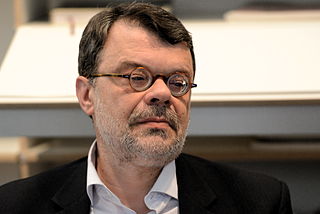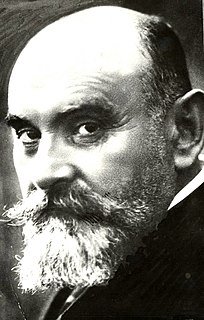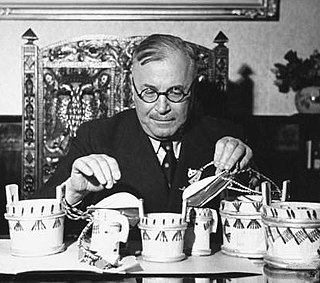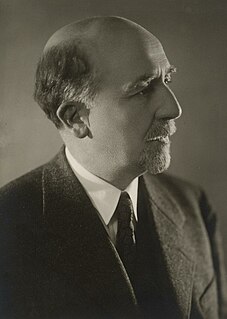 W
WPetre Andrei was a Romanian sociologist, philosopher and politician.
 W
WEkaterina Arbore, Arbore-Ralli or Ralli-Arbore, daughter of Zamfir Arbore, was a Romanian, Soviet and Moldovan communist activist and official. She was born in Geneva.
 W
WZamfir Constantin Arbore was a Bukovinian-born Romanian political activist originally active in the Russian Empire, also known for his work as an amateur historian, geographer and ethnographer. Arbore debuted in left-wing politics from early in life, gained an intimate knowledge of the Russian revolutionary milieu, and participated in both nihilist and Narodnik conspiracies. Self-exiled to Switzerland, he became a member of the International Workingmen's Association. Arbore was mostly active as an international anarchist and a disciple of Mikhail Bakunin, but eventually parted with the latter to create his independent group, the Revolutionary Community. He was subsequently close to the anarchist geographer Élisée Reclus, who became his new mentor.
 W
WDaniel-Constantin Barbu is a Romanian political scientist, publisher, essayist, journalist, and professor at the University of Bucharest's Faculty of Political Science. The head of the Research Institute at the University of Bucharest, and former dean of the Faculty, he was also director of Realitatea Românească, a daily newspaper, in 1991–1992. Barbu worked as a State Adviser for President Emil Constantinescu between 1997 and 1999. He is the author as of June 2007 of eight books and many more articles on political science, and a contributor to the magazine Sfera Politicii. He is also a member of the Romanian Senate from Bucharest and former Minister of Culture.
 W
WTraian Brăileanu or Brăilean was an Austro-Hungarian-born Romanian sociologist and politician. A native of the Bukovina region, he attended Czernowitz University, where he studied philosophy and classical languages, subsequently earning a doctorate. Ending up as a translator in Vienna, he fought for Austria during World War I. At the conclusion of hostilities, returned to the renamed Cernăuți, now part of Greater Romania. There, he soon became a professor of sociology, leading a "Cernăuți School" of academics during the interwar period.
 W
WAlexandru Claudian was a Romanian sociologist, political figure, and poet. A student and practitioner of Marxism, he worked as a schoolteacher, entry-level academic, field researcher, and journalist, before finally earning a professorship at Iași University. An anti-fascist, Claudian enlisted with the Romanian Social Democratic Party during the interwar, moving closer to the anti-communist center by the late 1940s, and became that faction's main theoretician. His condemnation of Marxism and totalitarianism made him an enemy of the communist regime, which imprisoned him for several years and kept him under surveillance until the time of his death.
 W
WMiron Constantinescu was a Romanian communist politician, a leading member of the Romanian Communist Party, as well as a Marxist sociologist, historian, academic, and journalist. Initially close to Communist Romania's leader Gheorghe Gheorghiu-Dej, he became increasingly critical of the latter's Stalinist policies during the 1950s, and was sidelined together with Iosif Chișinevschi. Reinstated under Nicolae Ceauşescu, he became a member of the Romanian Academy.
 W
WGeorge Ion Diamandy or Diamandi, first name also Gheorghe or Georges, was a Romanian politician, dramatist, social scientist, and archeologist. Although a rich landowner of aristocratic background, he was one of the pioneers of revolutionary socialism in France and Romania, obtaining international fame as founder of L'Ère Nouvelle magazine. He was an early affiliate of the Romanian Social-Democratic Workers' Party, but grew disenchanted with its radical policies, and, as a member of its "generous youth" faction, played a major part in dissolving it. With other members of this reformist group, he joined the National Liberal Party, serving as one of its representatives in Chamber.
 W
WConstantin Dobrogeanu-Gherea was a Romanian Marxist theorist, politician, sociologist, literary critic, and journalist. He was also an entrepreneur in the city of Ploiești. Constantin Dobrogeanu-Gherea was the father of communist activist Alexandru Dobrogeanu-Gherea and of philosopher Ionel Gherea.
 W
WDan Gheorghe Dungaciu is a Romanian sociologist and an expert in the situation in Republic of Moldova.
 W
WIon Ghica was a Romanian revolutionary, mathematician, diplomat and politician, who was Prime Minister of Romania five times. He was a full member of the Romanian Academy and its president many times. He was the older brother and associate of Pantazi Ghica, a prolific writer and politician.
 W
WAnton Golopenția was an Austro-Hungarian-born Romanian sociologist.
 W
WDimitrie Gusti was a Romanian sociologist, ethnologist, historian, and voluntarist philosopher; a professor at the University of Iaşi and the University of Bucharest, he served as Romania's Minister of Education in 1932–1933. Gusti was elected a member of the Romanian Academy in 1919, and was its president between 1944 and 1946. He was the main contributor to the creation of a new Romanian school of sociology.
 W
WSpiru C. Haret was an Armenian-Romanian mathematician, astronomer and politician. He made a fundamental contribution to the n-body problem in celestial mechanics by proving that using a third degree approximation for the disturbing forces implies instability of the major axes of the orbits, and by introducing the concept of secular perturbations in relation to this.
 W
WTraian Herseni was a Romanian social scientist, journalist, and political figure. First noted as a favorite disciple of Dimitrie Gusti, he helped establish the Romanian school of rural sociology in the 1920s and early '30s, and took part in interdisciplinary study groups and field trips. A prolific essayist and researcher, he studied isolated human groups across the country, trying to define relations between sociology, ethnography, and cultural anthropology, with an underlying interest in sociological epistemology. He was particularly interested in the peasant cultures and pastoral society of the Făgăraș Mountains. Competing with Anton Golopenția for the role of Gusti's leading disciple, Herseni emerged as the winner in 1937; from 1932, he also held a teaching position at the University of Bucharest.
 W
WGarabet Ibrăileanu was a Romanian-Armenian literary critic and theorist, writer, translator, sociologist, Iaşi University professor (1908-1934), and, together with Paul Bujor and Constantin Stere, for long main editor of the Viața Românească literary magazine between 1906 and 1930. He published many of his works under the pen name Cezar Vraja.
 W
WDan Lungu is a Romanian novelist, short story writer, poet and dramatist, also known as a literary theorist and sociologist. The recipient of critical acclaim for his short story volume Cheta la flegmă and his novels Raiul găinilor and Sînt o babă comunistă!, he is also one of the most successful authors to have emerged in post-1990 Romanian literature. Lungu's literary universe, which mainly comprises "microsocial" images of life under the communist regime and during the subsequent transitional period, bridges a form of Neorealism with Postmodernism. Often included among a group of authors who signed their first major contracts with Polirom publishing house, he is also seen as a distinctive voice from his adoptive provincial city of Iași.
 W
WVirgil Traian N. Madgearu was a Romanian economist, sociologist, and left-wing politician, prominent member and main theorist of the Peasants' Party and of its successor, the National Peasants' Party (PNȚ). He had an important activity as an essayist and journalist, being for long a member on the editorial board for the influential Viaţa Românească.
 W
WSabin Manuilă was an Austro-Hungarian-born Romanian statistician, demographer and physician. A nationalist activist during World War I, he became noted for his pioneering research into the biostatistics of Transylvania and Banat regions, as well as a promoter of eugenics and social interventionism. As a bio- and geopolitician, Manuilă advocated the consolidation of Greater Romania through population exchanges, colonization, state-sponsored assimilation, or discriminatory policies.
 W
WLucrețiu Pătrășcanu was a Romanian communist politician and leading member of the Communist Party of Romania (PCR), also noted for his activities as a lawyer, sociologist and economist. For a while, he was a professor at Bucharest University. Pătrășcanu rose to a government position before the end of World War II and, after having disagreed with Stalinist tenets on several occasions, eventually came into conflict with the Romanian Communist government of Gheorghe Gheorghiu-Dej. He became a political prisoner and was ultimately executed. Fourteen years after Pătrășcanu's death, Romania's new communist leader, Nicolae Ceaușescu, endorsed his rehabilitation as part of a change in policy.
 W
WNicolae Petrescu-Comnen was a Romanian diplomat, politician and social scientist, who served as Minister of Foreign Affairs in the Miron Cristea cabinet. He debuted in France as a public lecturer and author of several books on political history, then returned to Romania as a judge and member of the University of Bucharest faculty. Comnen spent most of World War I in Switzerland, earning respect at home and abroad for his arguments in favor of nationalism, his publicizing of the Greater Romanian cause, and especially for his support of the Romanian community in Dobruja. During the Paris Peace Conference, he was dispatched to Hungary, proposing political settlements that would have made the Treaty of Trianon more palatable to Hungarian conservatives. Also noted as an eccentric who published poetry, he was often ridiculed for his claim to a Byzantine aristocratic descent from the Komnenos.
 W
WSextil Iosif Pușcariu was an Austro-Hungarian-born Romanian linguist and philologist, also known for his involvement in administrative and party politics. A native of Brașov educated in France and Germany, he was active in Transylvania's cultural life and worked as a Romanian-language professor at Czernowitz in the Duchy of Bukovina. He began his scholarly career in 1906, when he was tasked with compiling a general dictionary of the Romanian language. Interested in a variety of disciplines, Pușcariu published widely and brought new ideas into Romania, as well as overseeing two monumental projects related to the language: advancing his dictionary to the letter "L", and creating an atlas of the language.
 W
WConstantin Rădulescu-Motru was a Romanian philosopher, psychologist, sociologist, logician, academic, dramatist, as well as left- nationalist politician.. A member of the Romanian Academy after 1923, he was its vice president in 1935–1938, 1941–1944, and its president between 1938 and 1941.
 W
WMihai Dumitru Ralea was a Romanian social scientist, cultural journalist, and political figure. He debuted as an affiliate of Poporanism, the left-wing agrarian movement, which he infused with influences from corporatism and Marxism. A distinguished product of French academia, Ralea rejected traditionalism and welcomed cultural modernization, outlining the program for a secular and democratic "peasant state". His ideology blended into his scholarly work, with noted contributions to political sociology, the sociology of culture, and social and national psychology. He was a professor at the University of Iași and, from 1938, the University of Bucharest.
Eugen D. Relgis (backward reading of Eisig D. Sigler; first name also Eugenio, Eugène or Eugene, last name also Siegler or Siegler Watchel; was a Romanian writer, pacifist philosopher and anarchist militant, known as a theorist of humanitarianism. His internationalist dogma, with distinct echoes from Judaism and Jewish ethics, was first shaped during World War I, when Relgis was a conscientious objector. Infused with anarcho-pacifism and socialism, it provided Relgis with an international profile, and earned him the support of pacifists such as Romain Rolland, Stefan Zweig and Albert Einstein. Another, more controversial, aspect of Relgis' philosophy was his support for eugenics, which centered on the compulsory sterilization of "degenerates". The latter proposal was voiced by several of Relgis' essays and sociological tracts.
 W
WRadu Rosetti was a Moldavian, later Romanian, politician, historian, and novelist, father of General Radu R. Rosetti, and a prominent member of the Rosetti family. From beginnings in traditionalist conservatism, he adopted progressive agrarian stances, and experimented with modernizing his estate in Căiuți. A Moldavian regionalist sitting on the left of the Conservative Party, he collaborated more or less formally with the National Liberal opposition during his tenure as prefect of Roman, Brăila, and Bacău. Also serving two terms in the Assembly of Deputies and briefly employed as general director of prisons, Rosetti adopted an anti-elitist and reformist discourse. This pitted him against Conservative chiefs such as Nicolae Filipescu and Titu Maiorescu, but he was protected by Lascăr Catargiu and, later, by Petre P. Carp.
 W
WHenric Sanielevici was a Romanian journalist and literary critic, also remembered for his work in anthropology, ethnography, sociology and zoology. Initially a militant socialist from the political-philosophical circle of Constantin Dobrogeanu-Gherea, he incorporated other influences and, in 1905, created his own literary review, Curentul Nou. Sanielevici and his friend Garabet Ibrăileanu were among the founders of "Poporanism", a peasant-oriented and left-wing movement. However, Sanielevici soon detached himself from both Marxism and agrarianism, criticizing Romanian traditionalist literature, and prophesying a Neoclassicism for the working men. His heated polemic with the rival school of Sămănătorul journal isolated him from the other Poporanists, whom he eventually denounced as "reactionaries". More controversy surrounded his ambiguous attitudes during World War I.
 W
WPetre Ştefănucă was a Bessarabian sociologist.
 W
WGheorghe Vlădescu-Răcoasa was a Romanian sociologist, journalist, left-wing politician and diplomat.
 W
WPaul Zarifopol was a Romanian literary and social critic, essayist, and literary historian. The scion of an aristocratic family, formally trained in both philology and the sociology of literature, he emerged in the 1910s as a rebel, highly distinctive, voice among the Romanian press and book reviewers. He was a confidant and publisher of the Romanian writer Ion Luca Caragiale, building his theories on Caragiale's already trenchant appraisals of Romanian society and culture. Zarifopol defended art for art's sake even against the Marxism of his father-in-law, Constantin Dobrogeanu-Gherea, and the Poporanism of his friend, Garabet Ibrăileanu. He was also a noted censurer of neoclassical trends, of philistinism, and of inauthentic customs, advocating renewal, but not revolution. A skeptic reviewer of modernist literature, he reemerged during the interwar period as its dedicated promoter, but his preference for literary entertainment over substance and many of his literary bets were shortly dismissed by other experts of the day.
 W
WȘtefan Zeletin was a Romanian philosopher, sociologist, liberal economist and political theorist.